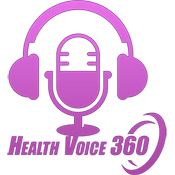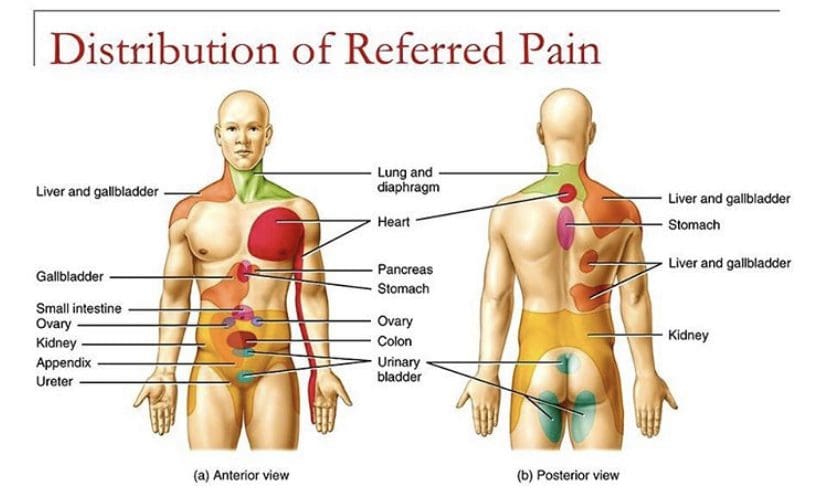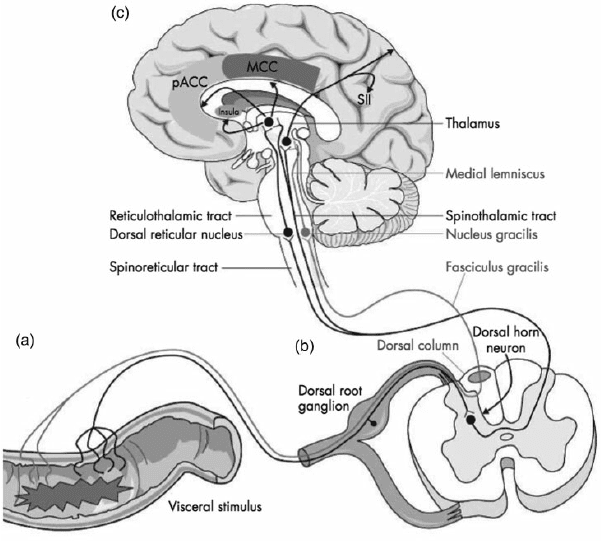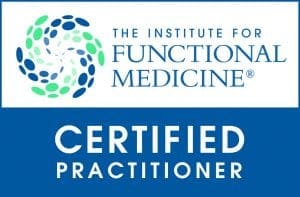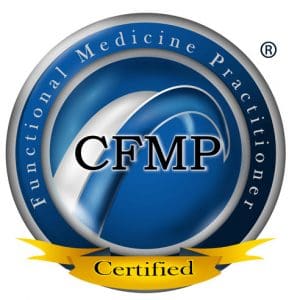Table of Contents
Introduction
In the body, the heart is a vital organ that pumps blood to all the muscles, organs, tissues, and ligaments that require the body to function and move. As part of the cardiovascular system, the heart keeps the body alive by supplying nutrients and disposing of waste and carbon dioxide away from the body. Various factors can affect the body and the heart as well stressful events, unhealthy eating habits, limited physical activities, or autoimmune conditions can cause strain on the heart. Still, they can correlate to different symptoms in the body. This causes an overlap of risk profiles that may feel something is wrong with the heart but might affect another body part. Today’s article focuses on viscero-somatic pain affecting more than the heart muscle, how referred pain is defined, and various ways for treating viscero-somatic pain in the body. We refer patients to certified providers specializing in cardiovascular and chiropractic treatments that help those with issues that affect their hearts. We also guide our patients by referring to our associated medical providers based on their examination when it’s appropriate. We find that education is the solution to asking our providers insightful questions. Dr. Alex Jimenez DC provides this information as an educational service only. Disclaimer
Visceral-Somatic Pain Affecting More Than The Heart
Are you experiencing radiating pain affecting your neck, arms, or back? How about feeling discomfort in your chest? Do gut issues seem to cause a burning sensation affecting your chest? Many of these symptoms overlap in risk profiles that seem like issues in the heart but can refer to something else affecting the body. This is known as viscero-somatic pain, usually defined as pain coming from the internal organs affecting the muscles that share the same nerve. Studies revealed that the autonomic nervous system mediates visceral-somatic pain. For the heart, the parasympathetic innervation comes from the cardiac branches of the vagus nerves connected to the spine and the brain. Since there is extensive autonomic innervation of the heart, the vagus nerve has a minor role in afferent pain transmission signaling.
An example would be having esophageal issues that are causing chest pains in your chest. So how would that correlate to the heart? Think of it as a person experiencing chest pains and whose brain is being signaled that something is wrong with their heart. Then, when they get treated, their results show that it was esophageal issues. Studies have revealed that spinal neurons receive input from a distal esophagus and receive the same information from the heart through viscero-somatic and viscero-visceral convergence. So what does this mean? This means that the sympathetic innervation of the heart is in a casual relationship to the first five thoracic spinal nerves. This indicates that some pain fibers affecting the heart are directly from the upper thoracic spine. Additional studies have mentioned that the vagus nerve connected to the upper thoracic spine can influence harmful afferent signals of the visceral organs to involve pain and joint stiffness in multiple organs and body structures.
Visceral Pain Explained- Video
Do you feel pain occurring on your shoulders or neck? How about severe pressure on your chest that might be something else? Or have you noticed issues that are affecting your heart are affecting your chest? Many of these are signs of visceral pain, where the pain of the damaged organ affects the muscle in a different body location. The video above explains visceral pain and uses an example of the cardiac muscle being affected by visceral pain. Studies reveal that the sensory input from different visceral organs can mimic cardiac pain due to viscero-somatic convergence of the cardiac input affecting the spinothalamic tract neurons in the spine to cause back issues in the thoracic region. So what does this implicates to the body? Well, say a person is experiencing chest and shoulder pains in their body; however, they’re experiencing heart problems that also affect them.
Treating Visceral-Somatic Pain In The Body
So, a person starts experiencing chest pain radiating from heart issues and goes to the doctor to see what is wrong with them. The physicians will begin to check on their hearts to see if anything is wrong or will be looking at their spine and chest through manual examination to see what is the issue that is affecting their bodies. So what does this mean to the body? Well, it could indicate that joint and muscle dysfunction in the neck and thorax is causing non-cardiac issues in the body. The influence of the spinal nerves on the cardiovascular function of the heart, since the afferent and parasympathetic efferents innervation of the heart, could disturb the upper cervical subluxation as the vagus nerve is being compressed. This correlates to other visceral organs mimicking cardiac pain and being the cause of musculoskeletal issues in the back.
Conclusion
In conclusion, the heart is a vital organ in the body that pumps blood to all the muscles, organs, tissues, and ligaments for functionality and nutrients distribution. The heart also share nerves in the parasympathetic innervation that connects to the vagus nerves which connects to the spine and brain to send information. However, various factors like lifestyle habits can affect the heart muscle and cause the individual chest pains that the brain is getting the signals that something is wrong with the heart. This is known a viscero-somatic pain where affected organs can cause muscle issues in the body in a different location. Treatments are available to figure out what the problem is going on with the body to understand better how to alleviate these viscero-somatic issues.
References
Foreman, Robert D, et al. “Mechanisms of Cardiac Pain.” Comprehensive Physiology, U.S. National Library of Medicine, Apr. 2015, https://pubmed.ncbi.nlm.nih.gov/25880519/.
Garrison, David W, et al. “Viscerosomatic Convergence onto Feline Spinal Neurons from Esophagus, Heart and Somatic Fields: Effects of Inflammation.” Pain, U.S. National Library of Medicine, June 1992, https://pubmed.ncbi.nlm.nih.gov/1408304/.
Leach, Austin, and Mike Fisher. “Myocardial Ischaemia and Cardiac Pain – a Mysterious Relationship.” British Journal of Pain, SAGE Publications, Feb. 2013, https://www.ncbi.nlm.nih.gov/pmc/articles/PMC4590151/.
Soares, Bruno, et al. “Accuracy of Physical Assessment in Nursing for Cervical Spine Joint Pain and Stiffness: Pilot Study Protocol.” JMIR Research Protocols, JMIR Publications, 17 Dec. 2021, https://www.ncbi.nlm.nih.gov/pmc/articles/PMC8726037/.
Disclaimer
General Disclaimer
Professional Scope of Practice *
The information herein on "Issues That Affect More Than The Heart" is not intended to replace a one-on-one relationship with a qualified health care professional or licensed physician and is not medical advice. We encourage you to make healthcare decisions based on your research and partnership with a qualified healthcare professional.
Blog Information & Scope Discussions
Welcome to El Paso's Premier Wellness and Injury Care Clinic & Wellness Blog, where Dr. Alex Jimenez, DC, FNP-C, a Multi-State board-certified Family Practice Nurse Practitioner (FNP-BC) and Chiropractor (DC), presents insights on how our multidisciplinary team is dedicated to holistic healing and personalized care. Our practice aligns with evidence-based treatment protocols inspired by integrative medicine principles, similar to those found on this site and our family practice-based chiromed.com site, focusing on restoring health naturally for patients of all ages.
Our areas of multidisciplinary practice include Wellness & Nutrition, Chronic Pain, Personal Injury, Auto Accident Care, Work Injuries, Back Injury, Low Back Pain, Neck Pain, Migraine Headaches, Sports Injuries, Severe Sciatica, Scoliosis, Complex Herniated Discs, Fibromyalgia, Chronic Pain, Complex Injuries, Stress Management, Functional Medicine Treatments, and in-scope care protocols.
Our information scope is multidisciplinary, focusing on musculoskeletal and physical medicine, wellness, contributing etiological viscerosomatic disturbances within clinical presentations, associated somato-visceral reflex clinical dynamics, subluxation complexes, sensitive health issues, and functional medicine articles, topics, and discussions.
We provide and present clinical collaboration with specialists from various disciplines. Each specialist is governed by their professional scope of practice and their jurisdiction of licensure. We use functional health & wellness protocols to treat and support care for musculoskeletal injuries or disorders.
Our videos, posts, topics, and insights address clinical matters and issues that are directly or indirectly related to our clinical scope of practice.
Our office has made a reasonable effort to provide supportive citations and has identified relevant research studies that support our posts. We provide copies of supporting research studies upon request to regulatory boards and the public.
We understand that we cover matters that require an additional explanation of how they may assist in a particular care plan or treatment protocol; therefore, to discuss the subject matter above further, please feel free to ask Dr. Alex Jimenez, DC, APRN, FNP-BC, or contact us at 915-850-0900.
We are here to help you and your family.
Blessings
Dr. Alex Jimenez DC, MSACP, APRN, FNP-BC*, CCST, IFMCP, CFMP, ATN
email: coach@elpasofunctionalmedicine.com
Multidisciplinary Licensing & Board Certifications:
Licensed as a Doctor of Chiropractic (DC) in Texas & New Mexico*
Texas DC License #: TX5807, Verified: TX5807
New Mexico DC License #: NM-DC2182, Verified: NM-DC2182
Multi-State Advanced Practice Registered Nurse (APRN*) in Texas & Multistate
Multistate Compact RN License by Endorsement (42 States)
Texas APRN License #: 1191402, Verified: 1191402 *
Florida APRN License #: 11043890, Verified: APRN11043890 *
* Prescriptive Authority Authorized
ANCC FNP-BC: Board Certified Nurse Practitioner*
Compact Status: Multi-State License: Authorized to Practice in 40 States*
Graduate with Honors: ICHS: MSN-FNP (Family Nurse Practitioner Program)
Degree Granted. Master's in Family Practice MSN Diploma (Cum Laude)
Dr. Alex Jimenez, DC, APRN, FNP-BC*, CFMP, IFMCP, ATN, CCST
My Digital Business Card
RN: Registered Nurse
APRNP: Advanced Practice Registered Nurse
FNP: Family Practice Specialization
DC: Doctor of Chiropractic
CFMP: Certified Functional Medicine Provider
MSN-FNP: Master of Science in Family Practice Medicine
MSACP: Master of Science in Advanced Clinical Practice
IFMCP: Institute of Functional Medicine
CCST: Certified Chiropractic Spinal Trauma
ATN: Advanced Translational Neutrogenomics
